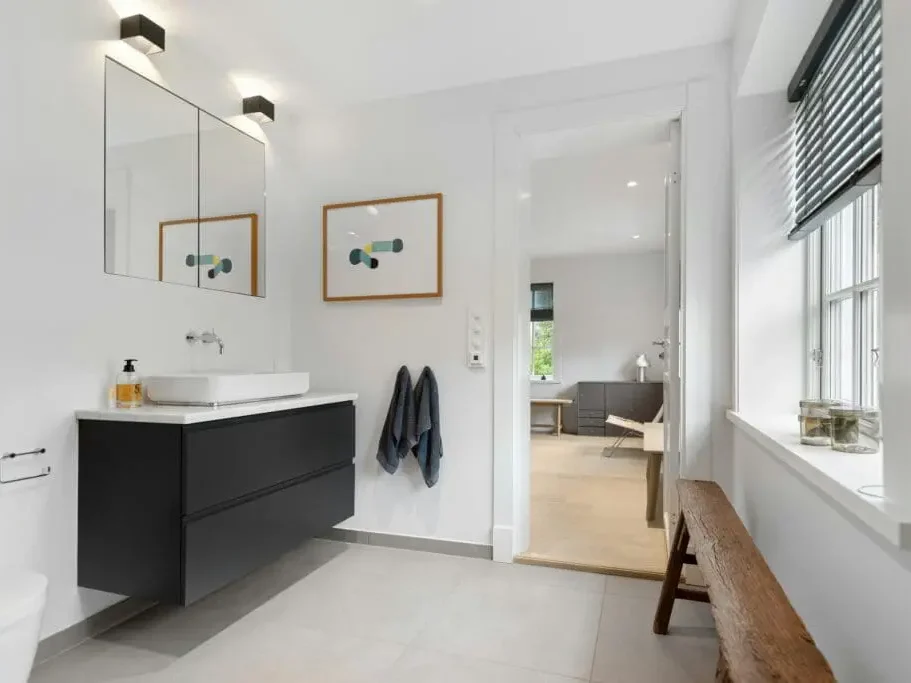When Hurricane Helene made landfall, it became one of the deadliest U.S. hurricanes since 1950—leaving over a million without power and hundreds of lives lost. But the devastation didn’t stop when the skies cleared.

Now, the storm’s aftershocks are rippling far beyond its path—impacting housing markets from western North Carolina to South Carolina, Georgia, and beyond. Even in Raleigh, where the storm didn’t directly strike, buyers are left asking:
Is my next home—and my financial plan—resilient enough to withstand the unexpected?
At Burson Home Advisors, we don’t just help clients find a home. We help them create a housing strategy that’s flexible, protective, and ready for life’s pivots.
Why Natural Disasters Matter to Homebuyers—Even Outside the Storm Zone
While Helene didn’t directly hit Raleigh, its impact serves as a critical reminder: housing risk isn’t just about location. It’s about structure, strategy, and support.
Here’s what we’re seeing across the Southeast:
- Damaged homes in flood-prone areas selling at reduced prices, impacting neighborhood comps and home values.
- Rising insurance rates due to increased claims and market volatility.
- Buyers pausing plans because traditional financing no longer feels feasible—or safe.

And here’s what that means for Raleigh:
- Buyers who might have looked in coastal or mountain regions are now shifting their search to safer inland areas, increasing competition in Raleigh.
- New construction projects in high-risk areas could slow down, creating ripple effects in supply.
- Some sellers in Raleigh may try to push “storm-safe” narratives without real proof of resilience—making due diligence more important than ever.
Not everyone is standing still.
Some are stepping forward with smarter alternatives that give them control, protection, and a chance to build wealth—even in uncertain conditions.
How to Assess a Home’s Resilience Before You Buy

Even if Raleigh isn’t in a hurricane-prone zone, resilience matters. Here are some steps buyers can take before making an offer:
- Review FEMA Flood Maps — Know if your home is in a floodplain, even if it’s miles from the coast.
- Check the Age of the Roof & Systems — Roofing, HVAC, and electrical systems play a huge role in storm resistance and insurance rates.
- Ask About Insurance History — Sellers are required to disclose certain past damages; a clean claim history can keep rates stable.
- Understand Community Infrastructure — Well maintained storm drains, reliable utility systems, and proactive HOAs can reduce post-disaster risk.
- Consider Resale Impact — Homes in even marginal risk areas may face slower appreciation or steeper discounts if extreme weather events increase.
When buyers combine these checks with a flexible purchase strategy, they’re positioned for both safety and financial security.
Lease-to-Own Raleigh: A Resilient Strategy for a Changing Market
We work with partners who offer flexible, equity-building programs that meet buyers where they are—especially when traditional mortgages aren’t an option.
Program benefits include:
- No mortgage approval needed.
- Low down payments that are never lost.
- Fixed monthly payments lower than a traditional mortgage.
- No buyer’s closing costs.
- The option to buy—or not buy—based on what life brings.
- Legal protection through closing with licensed real estate attorneys.
These programs work particularly well for:
- First time homebuyers Raleigh trusts who want to stop renting but aren’t
mortgage-ready. - Relocating families who need to explore the area before committing.
- Self-employed professionals navigating non-traditional income.
- Buyers recovering from credit challenges but financially stable now.
Case in Point: Relocating After Disaster
After another major storm two years ago, we worked with a couple who had been renting a home in a coastal town. Their landlord decided to sell after sustaining minor flood damage, leaving them with just 60 days to find housing.
They were financially stable but had only recently recovered from a business-related credit hit. Traditional mortgage approval was months away.
Through our lease to own Raleigh program, they were able to:
- Choose a home in a safer inland neighborhood.
- Lock in payments lower than a mortgage.
- Build equity during their lease period so they’d have a down payment ready when they purchased.
They now own that home outright, with strong equity gains—and they’ll tell you it all started by choosing resilience over reaction.
Why Renting Isn’t the Safer Choice Anymore
In the wake of major storms, many families default to renting “just for now.” But in Raleigh’s tightening rental market, this can backfire:
- Annual rent hikes with no equity return.
- Little control over lease terms or renewal.
- Zero wealth-building—even after years of paying on time.
By contrast, our lease to own Raleigh program allows renters to start building equity immediately—even before they’re ready to buy.
This isn’t just about real estate. It’s about resilience.
Final Thoughts: What This Means for You
Natural disasters won’t stop happening. Housing cycles will continue to shift. But your ability to build wealth, secure a home, and protect your future doesn’t have to wait.
Whether you’re relocating, seeking stability after a storm, or simply looking for a smarter way to buy, we’re here to help.
Learn more about our lease to own Raleigh homes available now:
https://www.bursonhomeadvisors.com/low-down-payment-homeownership/
